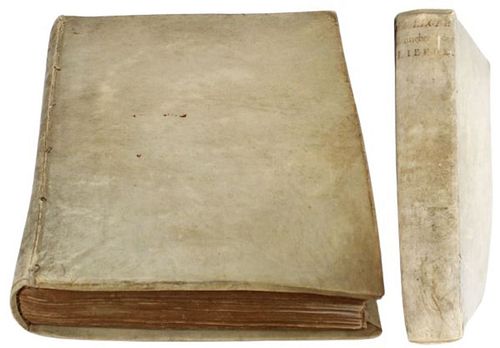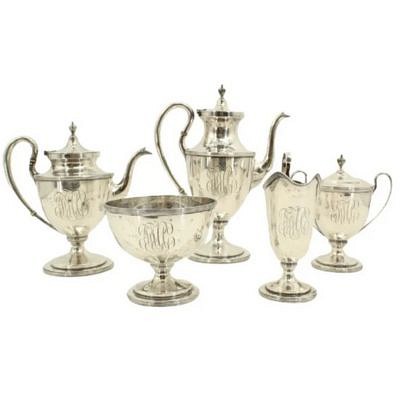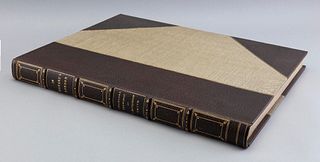Images Of Love, Willem den Elger, 1732
About Seller
522 South Pineapple Avenue
Sarasota, FL 34236
United States
Sarasota Estate Auction specializes in a wide variety of furniture, antiques, fine art, lighting, sculptures, and collectibles. Andrew Ford, owner and operator of the company, has a passion for finding the best pieces of art and antiques and sharing those finds with the Gulf Coast of Florida.
Two ways to bid:
- Leave a max absentee bid and the platform will bid on your behalf up to your maximum bid during the live auction.
- Bid live during the auction and your bids will be submitted real-time to the auctioneer.
Bid Increments
| Price | Bid Increment |
|---|---|
| $0 | $10 |
| $100 | $25 |
| $250 | $50 |
| $1,000 | $100 |
| $2,500 | $250 |
| $7,500 | $500 |
| $20,000 | $1,000 |
| $50,000 | $2,500 |
| $100,000 | $5,000 |
| $250,000 | $10,000 |
About Auction
Jan 20, 2024
Artists to include: Jorge Blanco, Leonardo Nierman, Picasso, LeRoy Neiman, Darrell Crisp, Francois Krige, Mino Delle Site, Peter Max, Edward Povey, Sky Jones, Robert Rauschenberg, and others. There are also 7 Original Charles Schulz Drawings done by Reuben Timmins, Production Cels, over 200 lots of Important Books and Manuscripts, Sterling Silver, a Jane Kostick Geometric Wooden Sculpture, Modern Design and Furniture, Fantastic Estate Jewelry, and so much more! Sarasota Estate Auction sarasotaestateauction@gmail.com
- Lot Description
Images Of Love, Willem den Elger, 1732. This book is titled “Zinne-Beelden der Liefde” on the vignette title page, which means “Images of Love”, and it was written by Willem den Elger and published in 1732. The title page reads “Zinne-Beelden der Liefde, Met Puntdigten en Anteekeningen” in Dutch, which means “Images of Love, with Points and Notes”, and it was published in Amsterdam by Jan Roman de Jonge, Boekverkooper in de St. Lucie-Steeg, which means Jan Roman de Jonge was a bookseller in the St. Lucie Alley. Willem den Elger (1678 or 1679 to 1703) was a Dutch poet and jurist born in The Hague and who died at a young age in Rotterdam. He was also a writer, translator, and playwright. Trained in the profession of law, he was deemed to have mastered it when he was just nineteen; he knew Latin, Greek, French and Italian, and the poems here are printed in Dutch, French, Italian, and Latin. One reviewer said den Elger deserves honorable mention among the poets of his time, and he might have been a better poet except for suffering an unhappy love life when he was young. He began his poetic career in 1698 with the translation of a French tragedy, “Pyrrhus, King of Epire”, and he added a farce titled “Wacht me voor dat laantje” - “Watch Me for that Lane” - later on. He wrote “Gedichten en Rotterdamsche Arcadia” - “Poems And Rotterdam Arcadia “ in 1703, and his translation of Quinault's “Death of Cyrus” came out in 1716, after den Elger had died. This book is also called “Symbols of Love”, and it has vellum covers, with gilt lettering on the spine, blank endpapers, with a name pencilled on the second flyleaf, the vignette title page followed by the regular title page, then two pages which read “D’Autheur aan den Leezer” (“from the Author to the Reader”), followed by a page titled “in Emblemata Amatoria Clarissimiviri” (Latin for “in the amorous emblems of the most famous men”), then “in eadem” (“in the same” ), two pages titled “Op de Zinnebeelden der Liefde, door den Heere, Mr. Wilhem den Elger”, or “On the Symbols of Love, by Mr. Wilhem den Elger”, two pages with “Vermaarden Hoogeleerden Heere Mr. Francois van Hessel, Hoogeleeraar der Welfpreekentheid, en Historien in het Doorlugte School der Stad Rotterdam” at the top, which means “Renowned Professor Mr. Francois van Hessel, Professor of Eloquence, and History in the Graduate School of the City of Rotterdam”, and there are 368 pages of text, with engravings. The first edition was published in 1703 and it was printed twice after that in the eighteenth century: in 1725 and 1732, so this is a third edition of a remarkable book of emblems about love. The text is decorated with figures in intaglio, and these emblems depict Cupid playing cards, stealing honey, teaching a young boy a game like croquet, strumming on an organ keyboard, smoking a pipe or skating in a wintery scene, and so on, and a beautiful frontispiece precedes the text of these poems. The emblemata depict both divine and human love, and Elger’s approach to emblems was innovative: rather than starting from the religious point of view, he illustrates love and then links it to religious concepts. His work proved successful, the book with its fifty emblems was printed three times, and each emblem includes a Dutch motto and a hexameter followed by poetry in the four languages he spoke. The book measures 8 1/4 x 6 5/8 in. wide, with a tight binding and rather clean pages and engravings, the vellum is a bit soiled, but very intact, the lettering on the spine has faded, there are occasional light brown spots, one page has small chips in the lower corner, and glue has leaked through on a couple of endpapers at the rear. (You can tell the light brown spots come from glue and not foxing because the images on the left page mirror the image on the right page, and that wouldn’t happen with foxing - the glue leaked through during the binding process.) Two tips are turned in as well. It was hard to find a first edition or even a third edition in special collections anywhere. According to WorldCat, we found only four first editions - one at the University of Glasgow, another at the Bibliotheque Nationale de France, at a library in Stockholm, and at the National Library of South Africa - and the 1732 edition is listed in just four libraries around the world - the British Library in London, a library in Berlin and Munich, and another at a library in Passau, Germany - so the book is rare in either edition, and the rest are ebooks or on microfilm. So a rare book with emblems of love, poems in several languages, and the book has held up remarkably well after nearly three hundred years. #5451
- Shipping Info
-
SHIPPING INFORMATION·
Sarasota Estate Auction IS NOT RESPONSIBLE FOR SHIPPING. All shipping will be handled by the winning bidder. Sarasota Estate Auction recommends obtaining shipping quotes before bidding on any items in our auctions. If you are interested in obtaining any information on local shippers, please send us an email and we will kindly send you a list of local shippers. Refunds are not offered under any circumstances base on shipping issues, this is up to the buyer to arrange this beforehand.
Premier Shipping, info@premiershipment.com
BIDDER MUST ARRANGE THEIR OWN SHIPPING. Although SEA will NOT arrange shipping for you, we do recommend our shipper Premier Shipping & Crating at info@premiershipment.com You MUST email them, please do not call. If you'd like to compare shipping quotes or need more options, feel free to contact any local Sarasota shippers. You can email any one of the shippers below as well. Be sure to include the lot(s) you won and address you would like it shipped to. Brennan with The UPS Store #0089 - 941-413-5998 - Store0089@theupsstore.com AK with The UPS Store #2689 - 941-954-4575 - Store2689@theupsstore.com Steve with The UPS Store #4074 - 941-358-7022 - Store4074@theupsstore.com Everett with PakMail - 941-751-2070 - paktara266@gmail.com
-
- Payment & Auction Policies
-
Available payment options
We accept all major credit cards, wire transfers, money orders, checks and PayPal. Please give us a call at (941) 359-8700 or email us at SarasotaEstateAuction@gmail.com to take care of your payments.
-
- Buyer's Premium



 EUR
EUR CAD
CAD AUD
AUD GBP
GBP MXN
MXN HKD
HKD CNY
CNY MYR
MYR SEK
SEK SGD
SGD CHF
CHF THB
THB



























